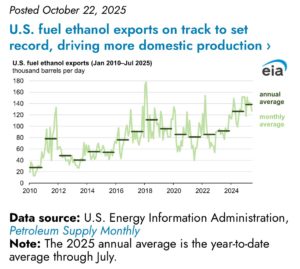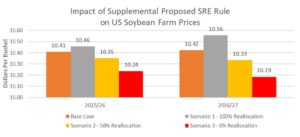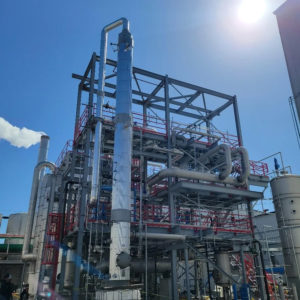 According to a new EIA analysis, the United States is on track to export a record amount of fuel ethanol for the second year in a row in 2025, driven by growing international demand.
According to a new EIA analysis, the United States is on track to export a record amount of fuel ethanol for the second year in a row in 2025, driven by growing international demand.
In the first seven months of 2025, U.S. fuel ethanol exports averaged 138,000 barrels per day (b/d)—the highest January through July average in our data, which goes back to 2010, and 9% more than 2024’s annual record of fuel ethanol exports. Growing international demand and a slight increase in production capacity are driving the high fuel ethanol exports this year.
With growing exports and flat consumption, exports are making up an increasing share of U.S. fuel ethanol production. Through the first seven months of 2025, 13% of domestic ethanol production was exported, compared with a record 12% in 2024 and a pre-pandemic high of 11% in 2018.
Growing demand in Europe has been driving the increase over the past year, with ethanol exports to the Netherlands accounting for most of the growth from 2024 through July 2025. Tracking data indicates ethanol exports have increased from the trade ports in the Netherlands, to the United Kingdom, France, and Ireland.
Other significant markets for U.S. ethanol include India, the United Kingdom, and Canada, all of which have blend mandates, with Canada remaining the top destination.












